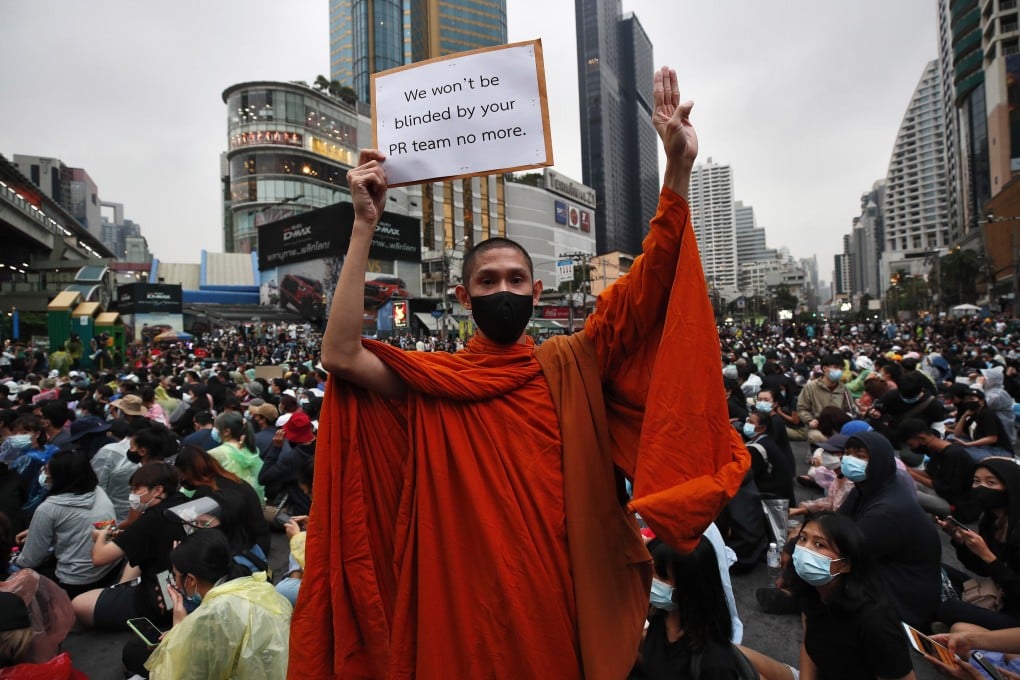Thailand protests continue for fifth day as demonstrations stretch beyond Bangkok
- The movement, which is calling for the prime minister’s resignation, a more democratic constitution and a reformed monarchy, began in March
- On Sunday, rallies were called in at least a dozen provinces, including Chiang Mai, a popular tourist destination in northern Thailand

Pro-democracy activists in Thailand launched their fifth straight days of protests on Sunday, scheduling demonstrations not just in the capital but also at several other locations around the country.
The demonstrators received a new warning from police that they are violating the law. On Saturday, however, few people were arrested as peaceful rallies were held at several points around Bangkok, the capital, with several thousand people taking part.

03:45
Thailand anti-government protests continue for fifth day as demonstrations stretch beyond Bangkok
On Sunday, rallies were called in at least a dozen provinces, including Chiang Mai, a popular tourist destination in northern Thailand.
The current cycle of confrontations began before dawn on Thursday, when police broke up an overnight rally outside Government House, which hosts the offices of Prime Minister Prayuth Chan-ocha. It led Prayuth to declare a state of emergency, banning gatherings of more than five people and allowing the government extra powers to keep the peace.
Protesters ignored the emergency decree and gathered on Thursday night in large numbers at a major intersection in Bangkok’s central shopping district. overcoming half-hearted resistance by thin lines of police.